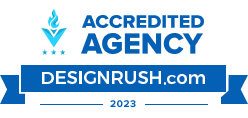How to Measure CRM Success at Every Stage of Implementation

A CRM (Customer Relationship Management) system can significantly impact an organization’s growth trajectory. But how do you measure the success of your CRM implementation? While the answer varies based on individual firm objectives, there are specific metrics and approaches to consider, which Chris Fritsch explores in this blog post.
Early-Stage Metrics for CRM Success
For firms just embarking on their CRM journey, immediate ROI or sales-related metrics might be far off. But that doesn’t mean you can’t measure success. Here’s how:
- Stakeholder Buy-In: Track the percentage of departmental leaders expressing support for the CRM initiative. Having leaders on board is pivotal for successful implementation and employee adoption.
- User Training Participation: Monitor the number of employees attending CRM training sessions. A high attendance rate indicates engagement and a willingness to adopt the new system.
- Data Migration Accuracy: For firms transitioning from another system, a successful data migration with minimal errors can be a sign of an effective CRM setup.
Growth Metrics for Established CRMs
Once the CRM system is in place, the metrics shift towards usage, engagement and tangible business outcomes:
- User Activity: Track the number of users actively engaging with the CRM system – adding contacts, updating records or pulling information.
- Email Performance: Use metrics like email deliverability, open rates and click-through rates to determine the health of your contact list and the effectiveness of your communication.
- Business Development Activities: Monitor activities leading to new business opportunities. This includes tracking interactions from an initial prospect conversation to sending out a proposal.
- Prospect Lifecycle: Analyze the time it takes to move a prospect from the initial engagement stage to a closed deal. A shortened lifecycle may indicate effective use of CRM data in the sales process.
Deepening Success in Established CRM Systems
For firms with established CRM systems, success measurement should delve deeper, focusing on optimization:
- Segmentation Efficiency: Assess how well you’re segmenting your audience. Effective segmentation should lead to higher engagement rates as content becomes more tailored to specific user groups.
- Sales Forecast Accuracy: Use the CRM to predict sales outcomes based on historical data and current trends. A higher forecast accuracy rate indicates that the system’s data is reliable and effectively utilized.
- Data Health: Regularly audit the CRM database for outdated or duplicate records. A clean database ensures accuracy in insights and strategies.
Key Takeaways for CRM Implementation Success
- Tailor Metrics to Your Stage: Depending on whether you’re just starting or are already deep into your CRM journey, choose metrics that reflect your current objectives.
- Early Engagement is Crucial: For new CRM implementations, stakeholder buy-in and training participation can set the tone for future success.
- Continuous Optimization: Even mature CRM systems need regular auditing and refinement. Stay proactive in optimizing data and processes.
- Holistic Approach: Beyond tangible metrics, consider qualitative feedback from users. Their insights can provide direction for further improvement.
Remember, the CRM journey is individual to each firm, reflecting its distinct goals and challenges. By adopting the appropriate success metrics for your specific phase and objectives, you align your CRM strategy with your overarching business vision.
This article underscores the importance of a bespoke approach, emphasizing that CRM success is not a one-size-fits-all endeavor. Continuous reflection, combined with a dedication to tailoring strategies and feedback mechanisms, ensures your CRM initiative remains a powerful tool in driving business growth and fostering stronger client relationships, and is ultimately a success.
If you need help implementing and/or managing your CRM system, CLIENTSFirst Consulting is here to help. For nearly 20 years, the team at CLIENTSFirst Consulting has been helping professional services firms and other organizations successfully select and implement CRM and eMarketing systems and improve Data Quality to maximize value, adoption and return on investment. If you need help achieving CRM Success, please contact us at 404-249-9914 or Info@CLIENTSFirstConsulting.com.







